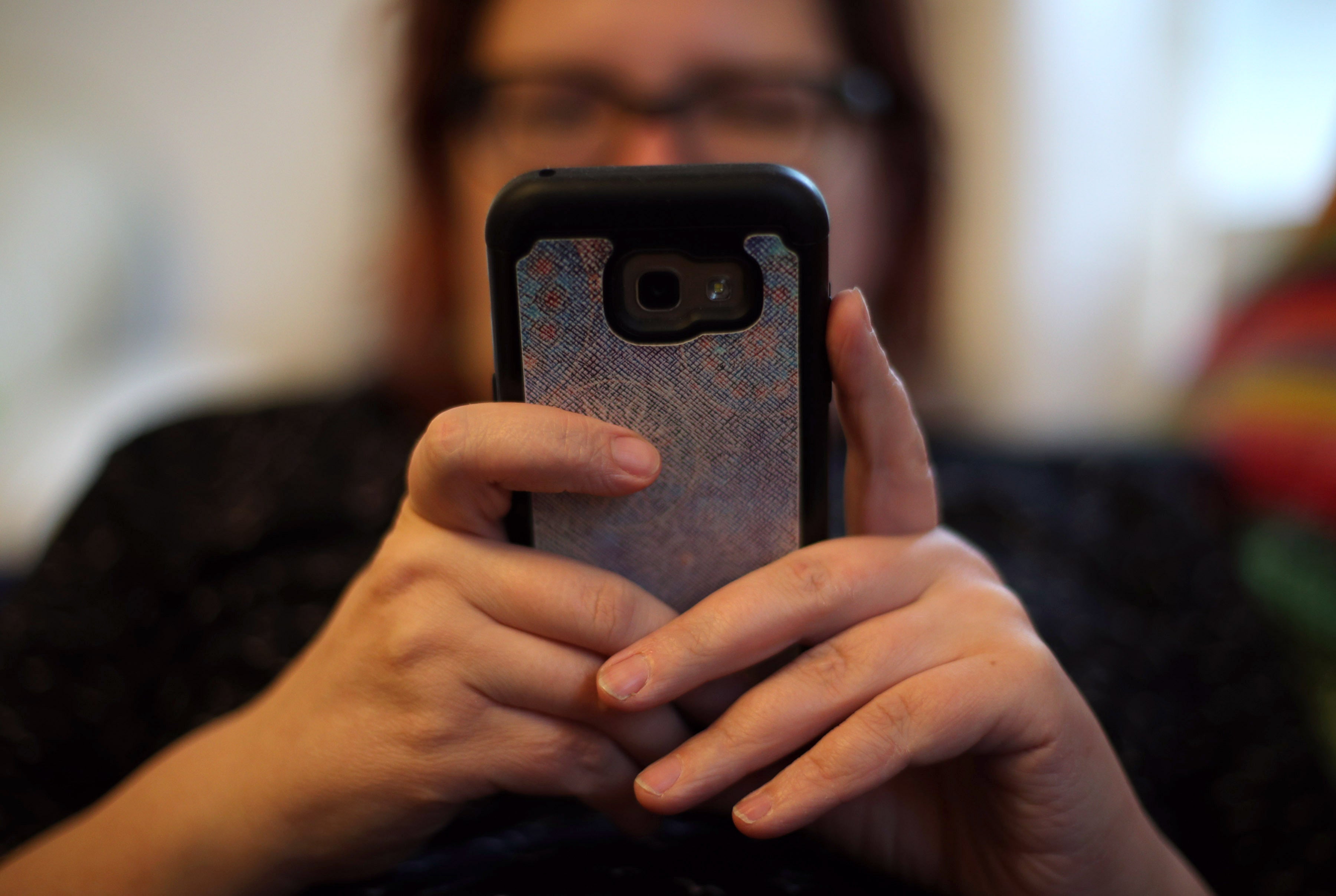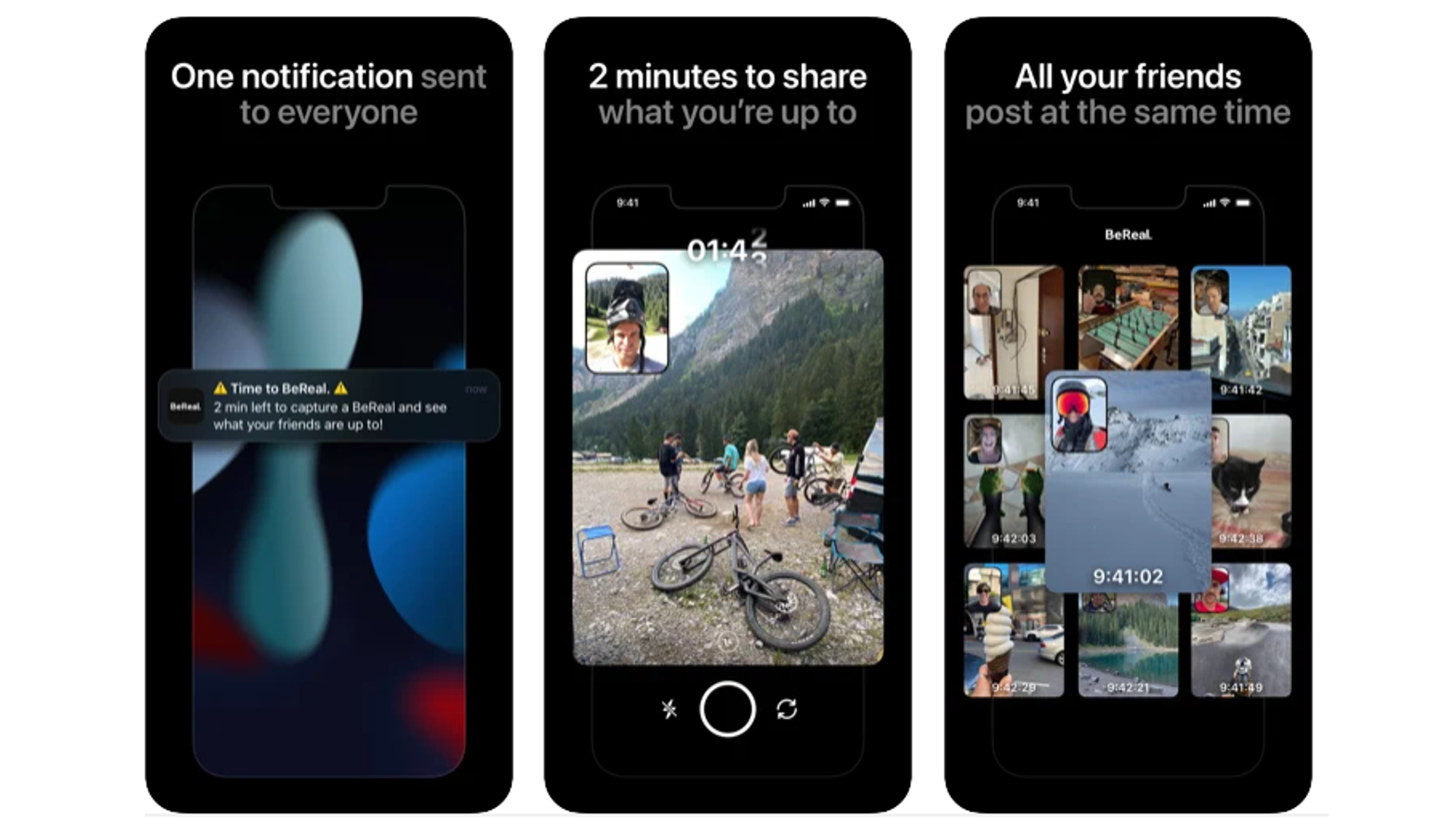The Independent's journalism is supported by our readers. When you purchase through links on our site, we may earn commission.
BeReal: What is the new app selling itself as the anti-social media platform?
The app asks users to take a picture every day using both cameras to show what they are doing at a given moment

Teenagers are downloading a new social media app called BeReal.
The app encourages users to share one picture every day to show what they are doing at any given moment.
Once a day, users receive a startling notification, with two yellow exclamation marks, that asks them to update their followers on what they are doing right then.
Users only have two minutes to send their photo after receiving the notification, which takes a picture using both the front and back cameras on a phone.
The app does not have filter or other photo editing tools, and while users who miss the two-minute window can upload a photo later other users will be informed that they were late.
"BeReal won’t make you famous," reads the description of BeReal in the App Store,"if you want to become an influencer you can stay on TikTok and Instagram."
How many people are using it?
The social media app has risen rapidly in popularity. From March to July the app grew from 10,000 to over 400,000 daily users, and although the app launched in December 2019 it has seen its user base rise this year. It is estimated to have been downloaded five million times across the world.
The app has sponsored events at US universities in order to get more popuar too, including Georgetown University and Harvard.

What data does it share?
BeReal claims that it will not sell your data to third parties but still shares a large amount of personal information.
It collects your name, date of birth, phone number, password, email address, transaction data, data sent from your phone camera, geolocation, and phoots stored on your phone. BeReal will keep this data for between two and three years, with user consent given either through the terms and conditions or a pop-up.
“It’s strange because it shares your exact location, like your coordinates,” one user told Mashable. “It’s not just your city or general location, but it’s your house on the map. So the app is kind of suspect.”
Why are people using it?
Unlike other apps like Instagram and Twitter, BeReal is not yet overrun by celebrities and influencers - instead presenting a smaller, more personalised experience.
“It’s kind of annoying to look at social media sometimes,” Jennifer Lindley, a sophomore at Lehigh University, told Bloomberg, adding that she was tired of looking at “posed things that you know aren’t real.”
Northeastern University sophomore Sean McGuire said that BeReal is a “neat way to deconstruct the formal and fake side of social media.”
The two-minute window means that BeReal also takes up less time than other social media, which can be more consuming with constant notifications and feedback loops.
“There is an opportune moment for an alternative to the attention-hogging social networks. BeReal knows this all too well; it positions itself in direct contrast to Facebook and Instagram. That levels the playing field”, Internet trend expert Clark Boyd told Vice.
“On Instagram, we cannot help but compare ourselves with the lives we see, often in unfavourable terms. The pictures are perfectly curated and they are, well, they’re not real.”
However, some users may be bored by the mundanity. With the encouragement to post spontaneously, most people will be caught doing less interesting things than those posted on Instagram or other networks.
“Looking through BeReal’s feeds shows an endless stream of people laying in bed, sitting in class, commuting on the bus or subway, working at their desks, staring at walls, or otherwise in places where they are actively using their phones”, Vice’s Jason Koebler writes.
Join our commenting forum
Join thought-provoking conversations, follow other Independent readers and see their replies
Comments
Bookmark popover
Removed from bookmarks